Italy weather: Heavy snow grips earthquake region
- Published
Diggers have been clearing snow in the Marche and Abruzzo regions
Central Italy is in the grip of heavy snowfall and very low temperatures, adding to the disruption caused by recent huge earthquakes.
Worst affected is the Abruzzo region, still recovering from a 2009 quake, while towns hit in Marche and Lazio last year are also badly affected.
More than 300,000 people are without power in Abruzzo and traffic has been disrupted in the Marche quake zone.
Three deaths across Italy have been attributed to freezing weather.
A man of 67 was found dead in the street in Ceglie Messapica, Puglia, and a homeless man of 53 was found dead in a square in Canicatti, Sicily.
A man aged 67 died in Giulianova, Abruzzo, after falling from a boat into icy water.
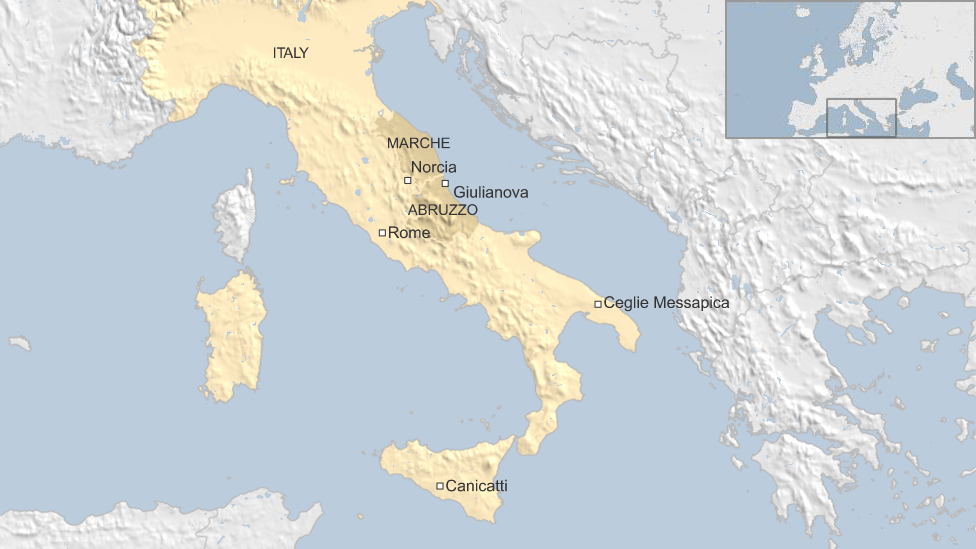
Fabrizio Curcio, head of the country's Civil Defence Department, told Italian radio the harsh weather was expected to last until Thursday night at the earliest.
The temperature in Amatrice, Lazio, where 236 people were killed by the earthquake on 24 August, and Arquata del Tronto, Marche, where 46 died, is set to fall as low as -6C on Tuesday night, with more snow forecast.
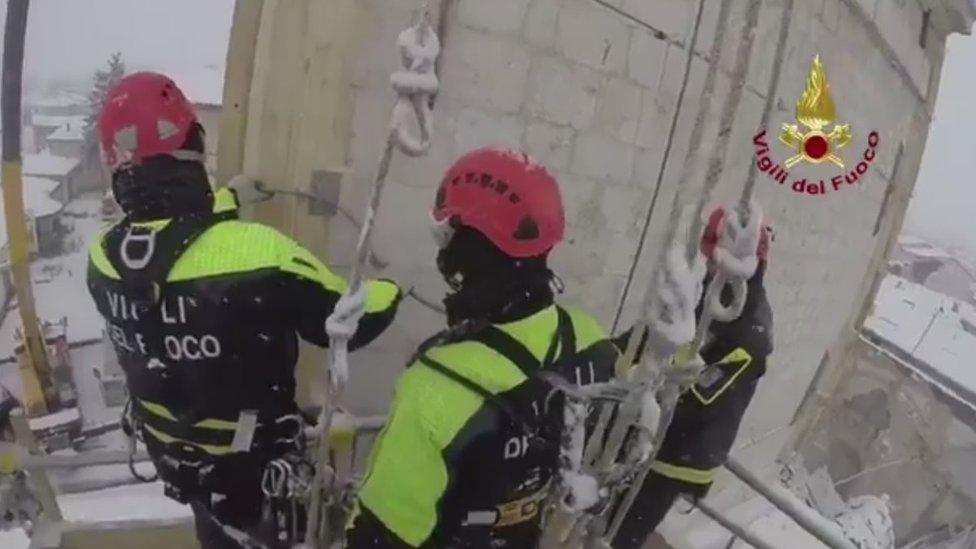
Earthquake recovery work has continued in Norcia
That quake left several thousand people homeless, while a further tremor on 30 October put 30,000 out of their homes.
Up to 1.3 metres (4.3ft) of snow is lying on the ground in Marche, where some 20,000 people were without power on Tuesday, the regional authorities said.
Camps for people made homeless by the quakes in Marche region are now closed with most people moved to hotels along the Adriatic coast or into secure houses, flats or container homes, the press office told the BBC on Tuesday.
Meanwhile, buildings made fragile by the tremors are under renewed pressure from the weight of the snow.
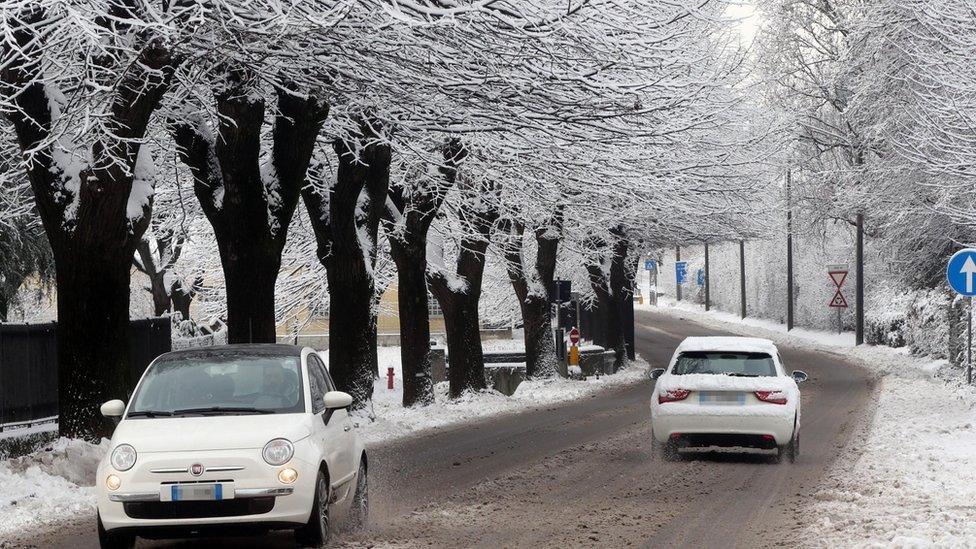
Cold weather has gripped Italy from Sicily in the south to Lake Como in the north (pictured)
Notwithstanding the bad weather, the fire service has been continuing its earthquake recovery work in Norcia, external, Umbria, another town badly damaged by tremors.
The cold snap continues to affect other parts of Southern Europe. Snow fell in Spain's Balearic islands as well as the east coast city of Valencia.
Weather forecasters said temperatures in the Pyrenees mountains in northern Spain could fall as low as -30C.
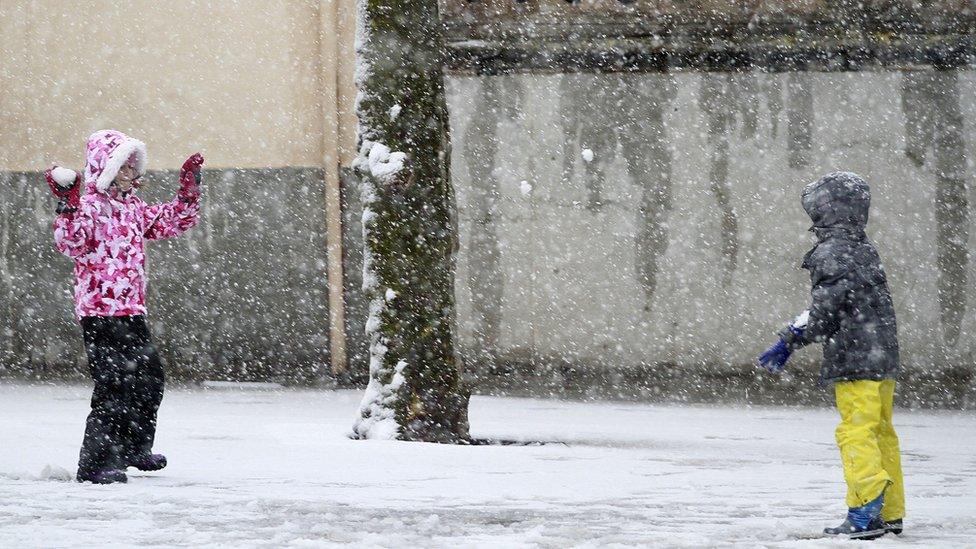
Children took advantage of the rare snowfall in Palma de Majorca on Tuesday
- Published9 January 2017
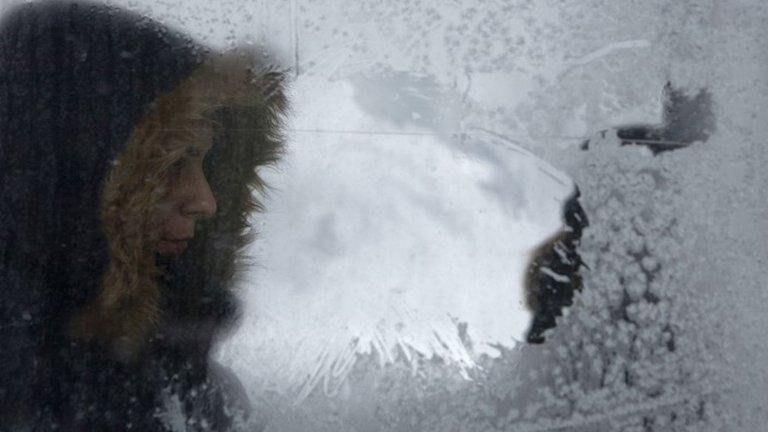
- Published9 January 2017